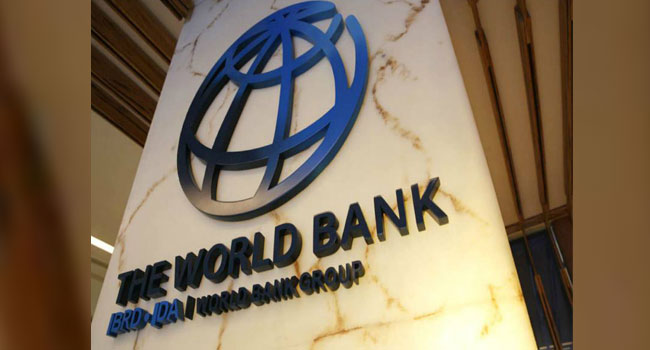Nigeria has requested an 18-month extension on the closing date of the World Bank’s $800m palliative loan to boost its social safety net programs
The request comes in the wake of the country’s battle against rising inflation and economic challenges.
According to a restructuring paper document on the project from the World Bank, the Nigerian government has requested for an extension of the closing date of the project from June 30, 2024, to December 31, 2025.
According to the report, about three million poor and vulnerable households have benefitted from the $800m palliative loan.
The apex bank had disbursed the loan to cushion the effect of recent government policies, such as the fuel subsidy removal.
Of these beneficiaries, 700 thousand households were from rural areas and about 2.5 million households were from urban areas.
The extension seeks to realign project timelines and enhance the efficacy of the National Social Safety Net Program-Scale Up, adding that 1,652 urban wards had been covered through the targeting system developed under the project.
The document read in part, “Since its start, about 30 million beneficiaries have been covered by social safety net programs, and about three million poor and vulnerable households have received shock responsive cash transfers as of May 2024. Of these beneficiaries, 700 thousand households were from rural areas and about 2.5 million households were from urban areas. 1,652 urban wards have been covered through the targeting system developed under the project.”
It added that a planned digital payment delivery mechanism had been put in place, using straight-through processing to deliver transfers directly to beneficiaries’ accounts or wallets while the National Social Register is being integrated with the National Identification Number to further strengthen the targeting system.
The NASSP-SU project, initiated to provide shock-responsive safety net support to Nigeria’s poor and vulnerable, was approved on December 16, 2021, and became effective on January 30, 2023.
With this loan, the Federal Government plans to run a monthly cash transfer programme for poor and vulnerable Nigerians, who have been hit hard by recent policies, such as the fuel subsidy removal.
But it was abruptly stopped following a probe of alleged malfeasance in the management of the scheme by the Ministry of Humanitarian Affairs and Poverty Alleviation.
As part of restructuring to restart the cash transfer, the government has sought approval to change the chairmanship of the project’s national steering committee from the Minister of Humanitarian Affairs and Poverty Alleviation to the Minister of Finance.
It also stressed that the extension request stems from Nigeria’s ongoing battle with high inflation, which peaked at 33.2 per cent in early 2024, exacerbated by the removal of fuel subsidies and exchange rate depreciation.
The document partly read, “This paper seeks approval from the Country Director for a Level II restructuring of the National Social Safety Net Program Scale-Up project, an $800m Investment Project Financing. The restructuring will extend the project closing date by 18 months from June 30, 2024, to December 31, 2025. The benefit size and duration of the cash transfers under component 1 will also be changed.
“Despite earlier delays, the project remains central to the government’s ambitious plan to provide temporary cash transfer support to the population affected adversely by high inflation, particularly in the wake of the fuel subsidy removal and other macroeconomic reforms the government is undertaking.
No financial or audit reports are pending, and there are no changes in the audit requirements. There have been some delays in procuring key service providers, and contract management practices are being improved by building the capacity of the PIU’s procurement team. The World Bank will keep providing embedded support to the project to improve the financial management and procurement practices.”
So far, only 39.38 per cent of the entire loan has been released to Nigeria, as there is a pending balance of about $485 million.
To mitigate the adverse effects of inflation and economic reforms, the Nigerian government plans to reach 15m households with N75,000 in temporary cash transfers, distributed in three monthly payments.
“The ESR-CT will provide total benefit amounts of seventy-five thousand Naira (N75,000) to each beneficiary household, spread across three months. To be in line with the government’s announced program, and in response to increased inflation in recent years, the benefit size for cash transfers will be increased from thirty thousand Naira (N30,000) per beneficiary household, spread over six months,” it further stated.
Meanwhile, the bank has commenced preparation of a Security Risk Assessment and Management Plan which will advise on the adequate measures the project actors and stakeholders will employ to mitigate security risks.
This is because the bank recorded, “Two fatal incidents involving project staff were recorded. A project staff returning from conducting field activities was involved in a road accident and another project staff was murdered in his residence by suspected armed bandits. The project reported another road accident involving a project staff during a field exercise that resulted in leg injuries.”
The $800m loan obtained by the Federal Government attracts a maximum commitment charge rate of one-half of one per cent per annum on the unwithdrawn Financing Balance and a service charge of three-fourths of one per cent per annum on the withdrawn credit balance, according to the document.
It also disclosed that the interest charge is one and a quarter per cent per annum on the withdrawn credit balance.
While the first payment will be 1.65 per cent of the principal amount, the last payment will be 3.40 per cent.
Also, a percentage of the principal amount of the loan is expected alongside the other charges, and this will increase over time.


